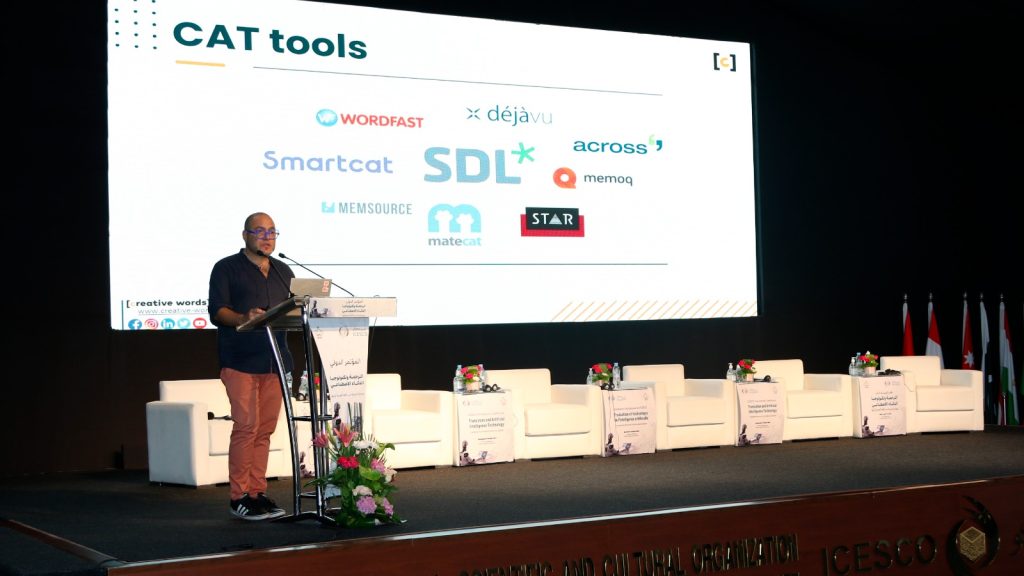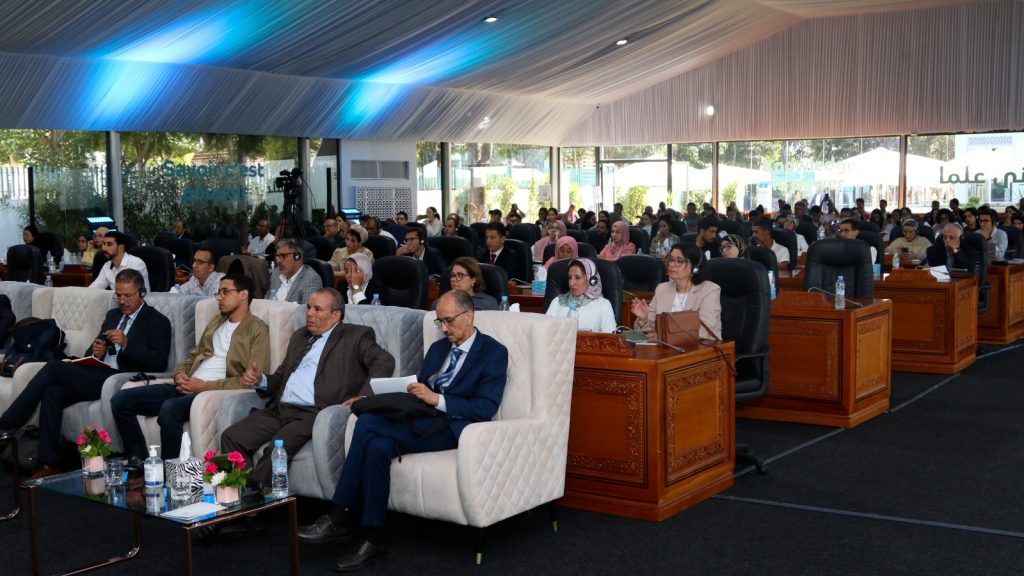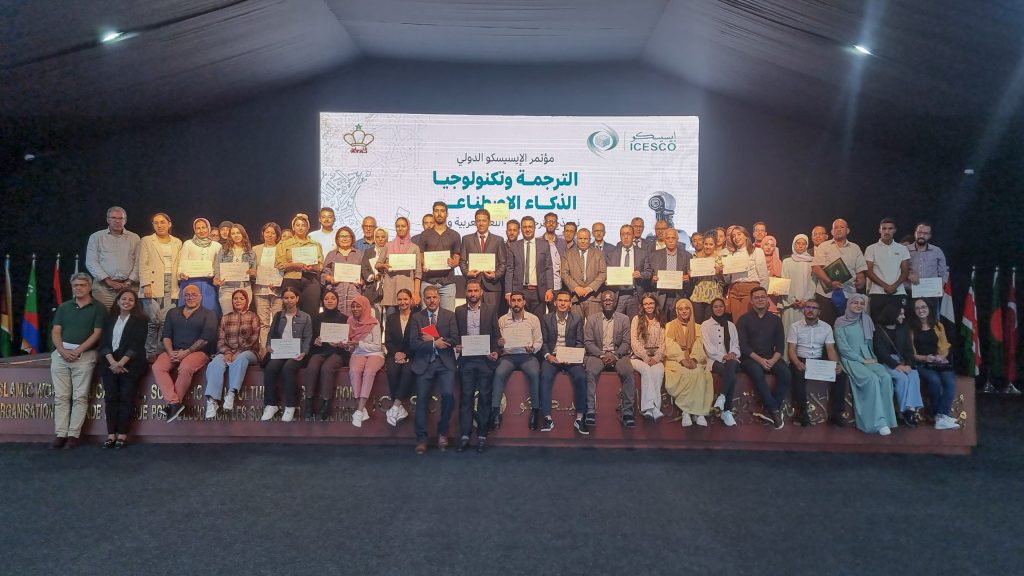
ICESCO Holds International Conference on Translation and Artificial Intelligence
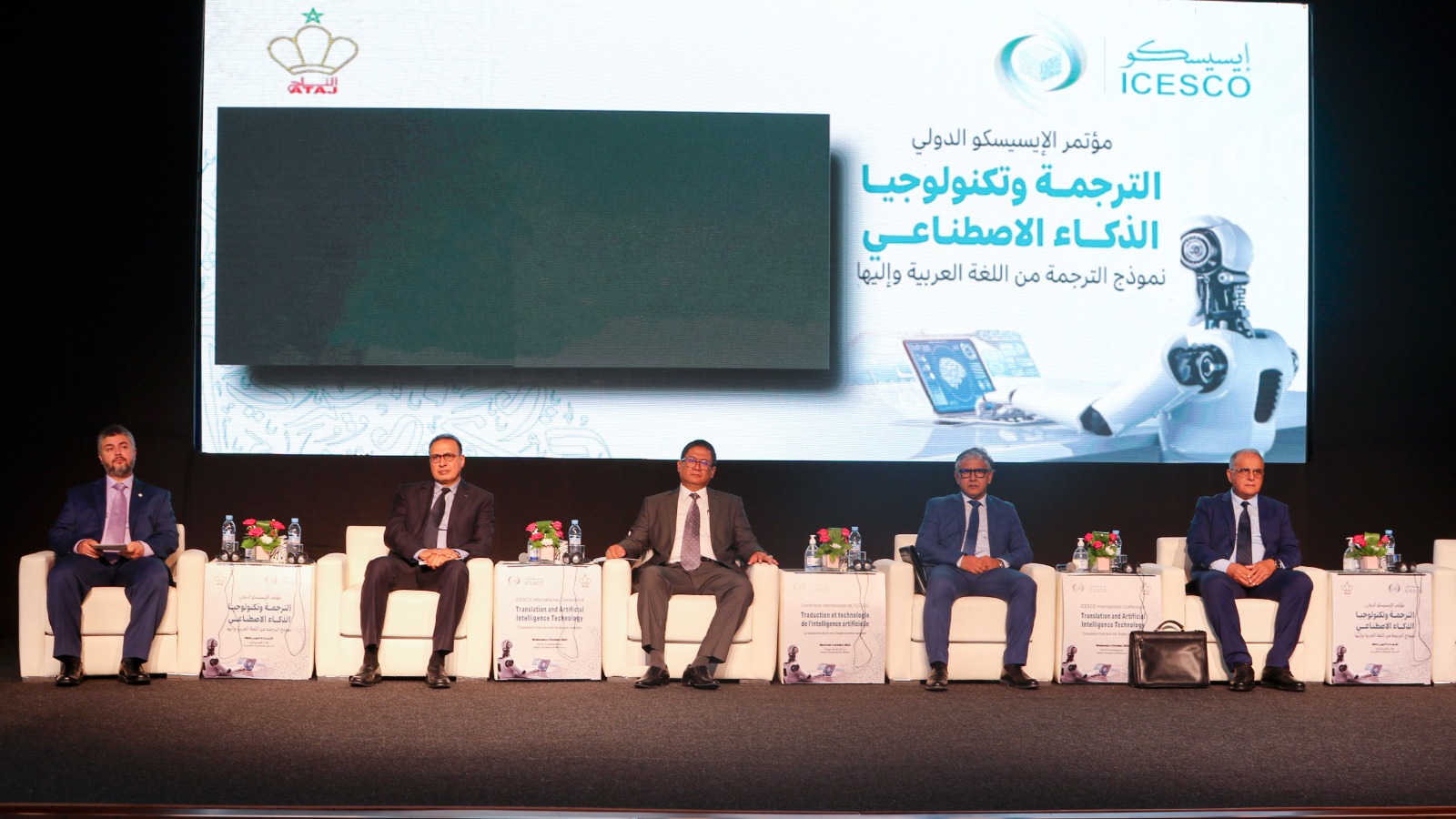
5 October 2023
The Islamic World Educational, Scientific and Cultural Organization (ICESCO) held a conference themed “Translation and Artificial Intelligence Technology: Translation from and into Arabic as example” on 4 October 2023, in cooperation with the Association of Court Certified Translators of Morocco (ATAJ) in the presence of an elite group of international experts, students and researchers in the field of translation to discuss avenues of fostering the aesthetic and creative dimensions of Arabic translations in digital and non-digital environments, capacity building of young translators, training professionals on machine translation in addition to exchanging experiences in creative translation to improve translation quality.
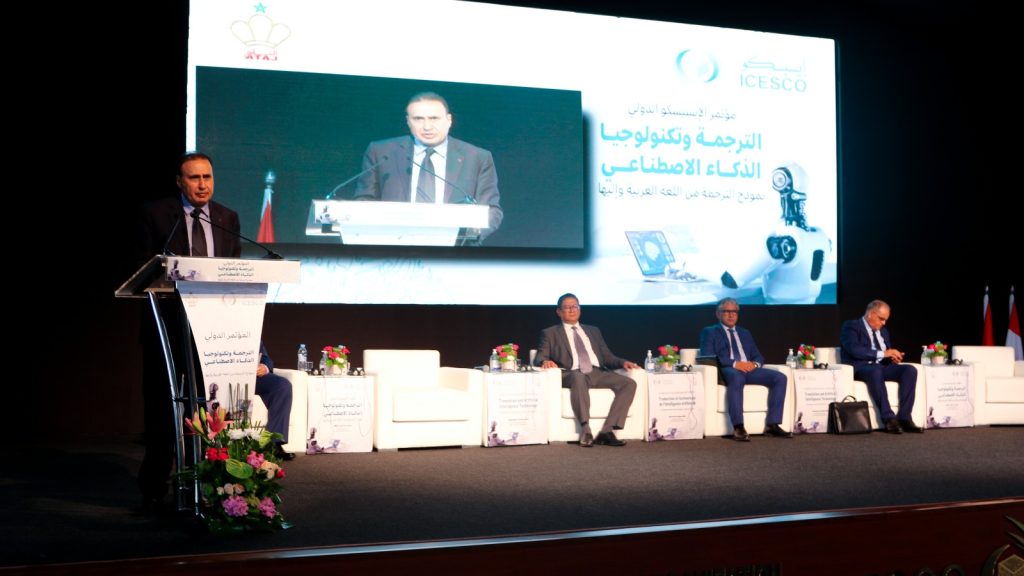
The opening session initiated with the recitation of verses from the Holy Quran, followed by the address of Dr. Salim M. AlMalik, ICESCO Director-General, which was delivered on his behalf by Dr. Abdelillah Benarafa, ICESCO Deputy Director-General, stressing the conference’s endeavours to outline the challenges of using AI tools to translate from and into Arabic amid ethical concerns about AI’s distortions of meaning.
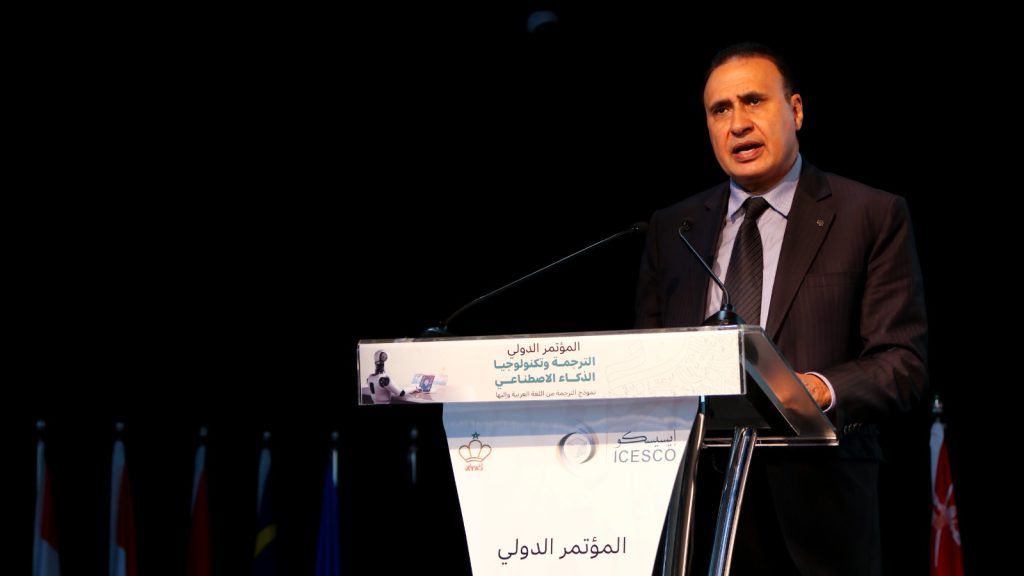
He further expounded the role of translation in lying bridges of communication between diverse nations and cultures, reiterated the ever-growing need for translation, and highlighted ICESCO’s efforts in translating books and articles in various disciplines related to the Islamic world to convey its civilizational message worldwide.
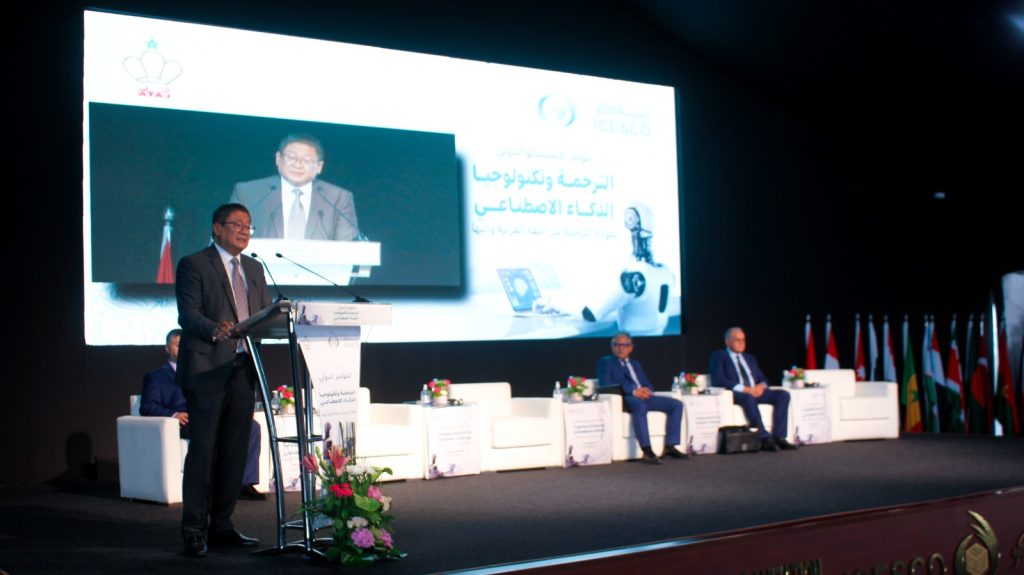
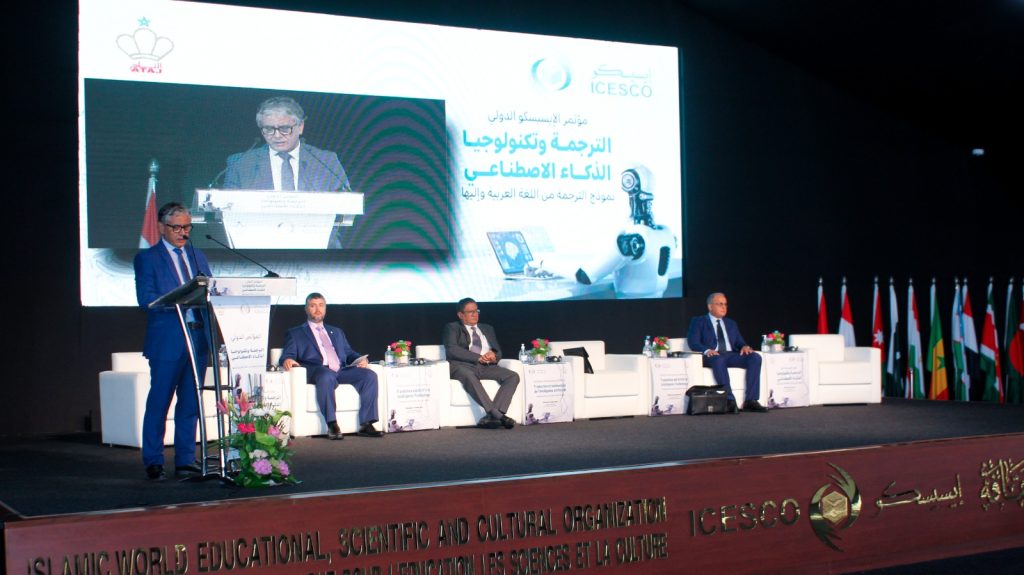
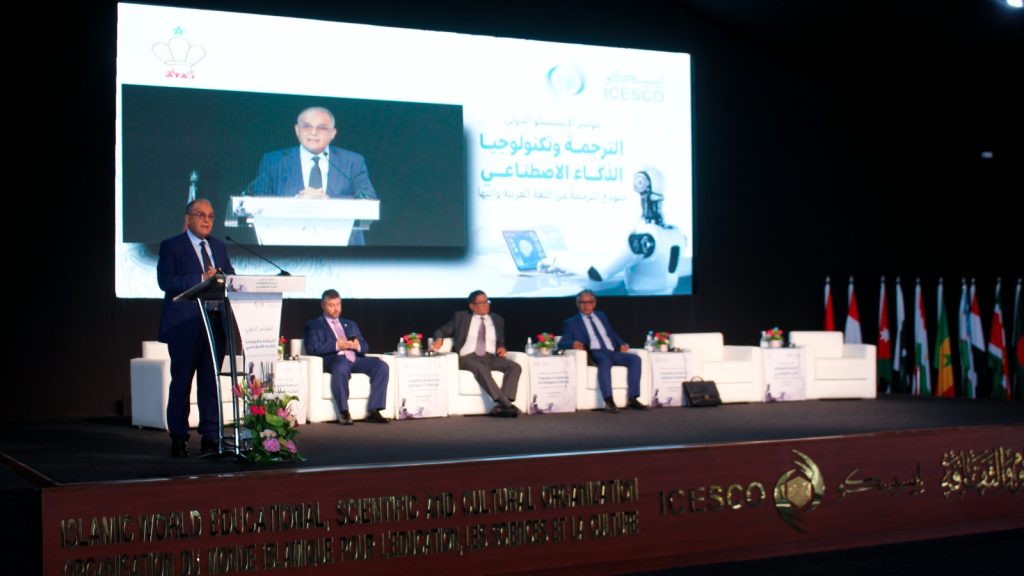
Afterward, the first session kicked off with an intervention made by Diego Cresceri, CEO of Creative Words, on “Machine Translation and AI: Reality and Challenges”, in which he stressed the need to master AI tools and deal with its limitations. Following, Mohamed Ougamadan, Head of the UN Arabic Department in Geneva, argued that AI helps with quality checking and consistency of translations and comes in handy for languages with low resources and references.
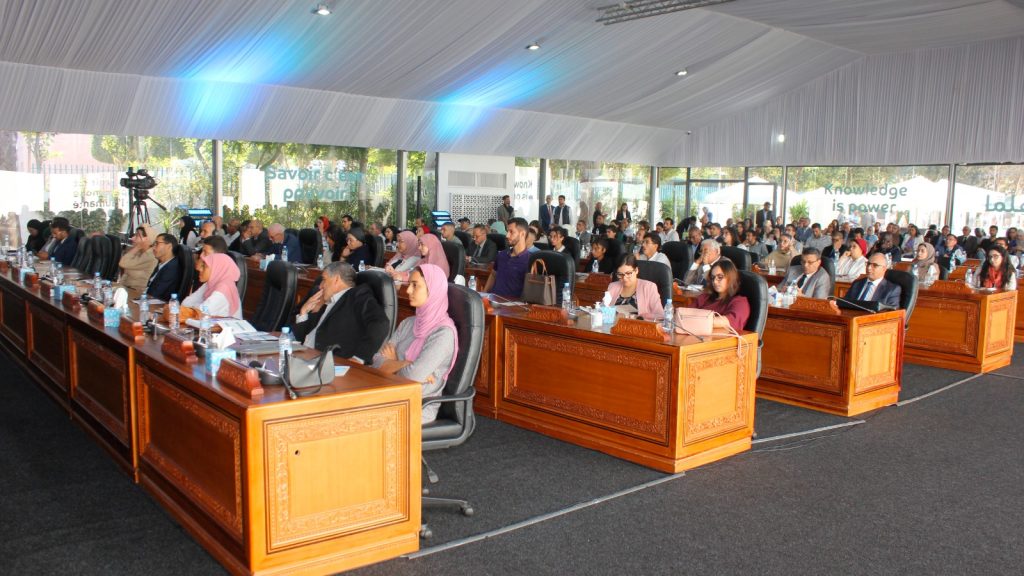
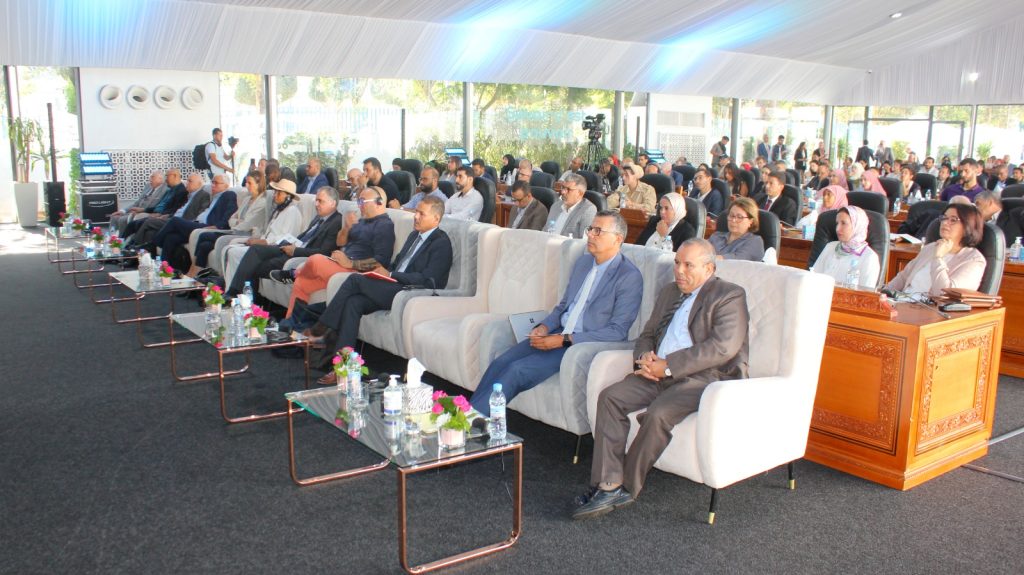
Speaking next, Mr. Smail Ajbaili, Head of ICESCO Translation Centre, reviewed the history and advantages of machine translation in Arabic and attributed its drawbacks to the rich and polysemous nature of Arabic vocabulary. Mr. Abdel-Fattah Al-Hajmari, Director of the Arabization Coordination Bureau, affiliated with the Arab League Educational, Cultural and Scientific Organization, made an intervention entitled “Arabic and the much-needed Human Intelligence”. The subsequent intervention, delivered by Muwafaq Faeq Tawfiq, the first interpreter in Al Jazeera News, stressed that translation is not a mere word-for-word process but bears the intended meaning and context and abides by cultural nuances specific to each language.
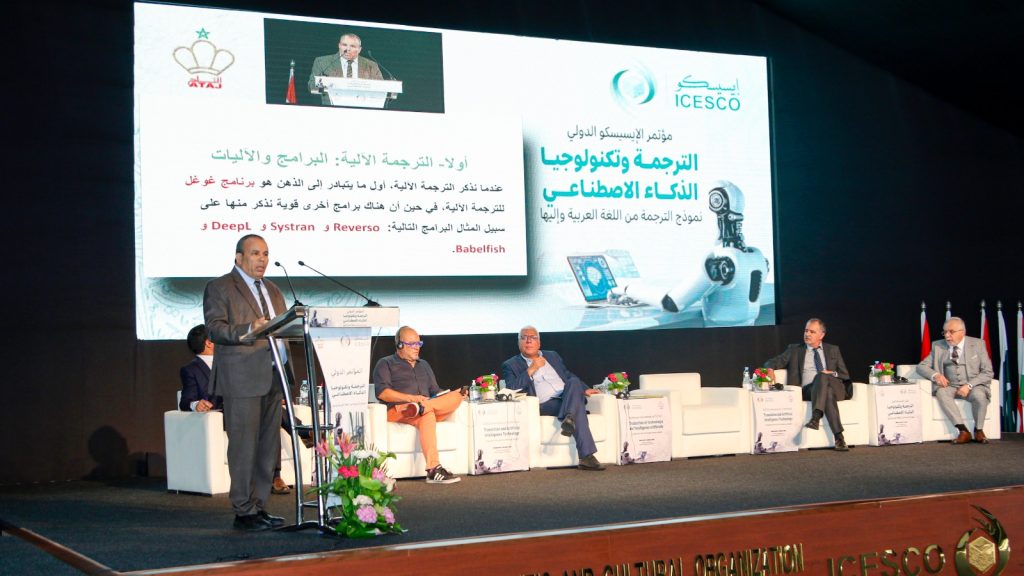
The second session, led by experts from the Kingdom of Morocco, the Republic of Lebanon and Malaysia, witnessed rich interventions on the future of simultaneous translation amidst the technological evolution. The panelists were unanimous in their view that machine translation is evolving in terms of speed, quality and accessibility and that it will approach human-level accuracy but is less likely to fully replace translators.
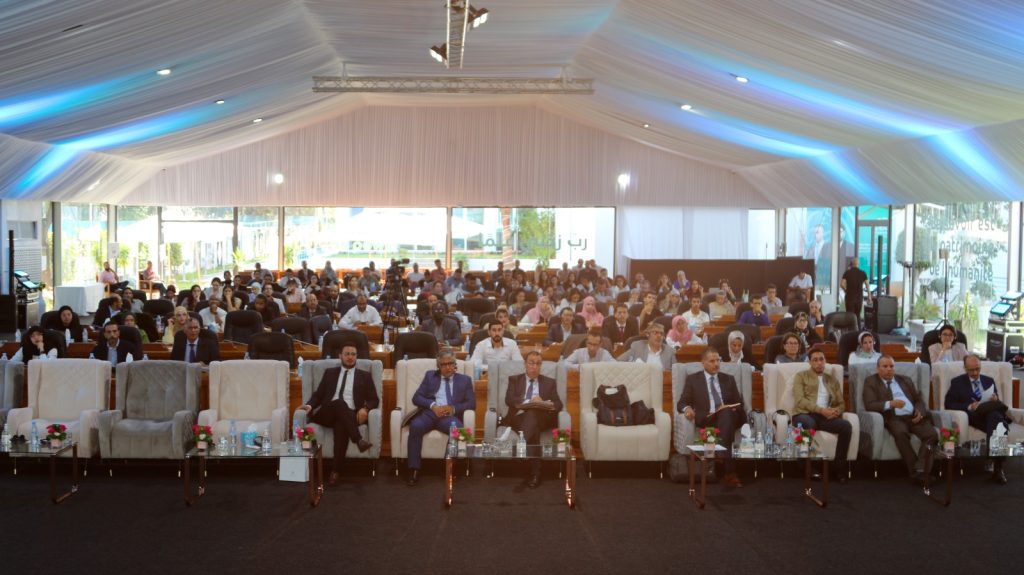
This International Conference culminated with a workshop on machine translation, delivered by Mr. Diego Cresceri, CEO of Creative Words, for the benefit of students and researchers.
